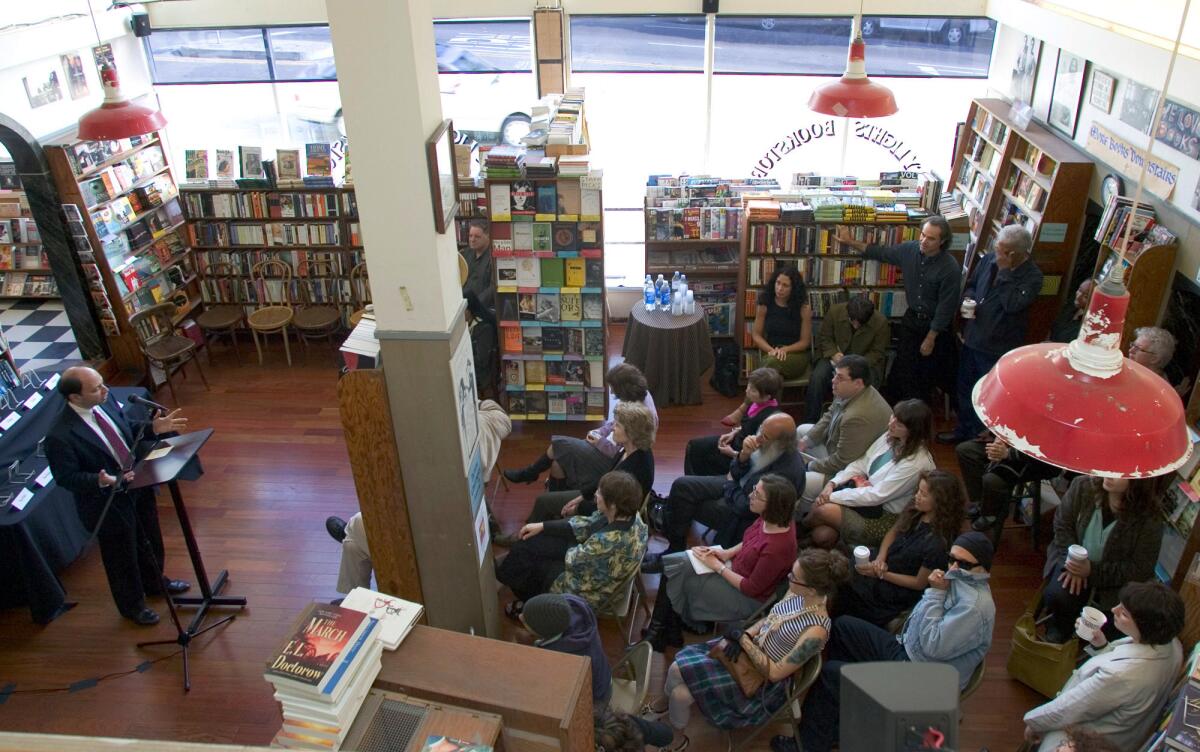Should the National Book Award rethink its longlist?

- Share via
I’m not a fan of the National Book Award longlist. Created in 2013 as a way to provoke more buzz around the awards and literature in general, it seems to me, in its second year, to be having the opposite effect.
Back in September, when the four longlists were rolled out — 10 books each in the categories of fiction, nonfiction, poetry and young people’s literature — there was much discussion of the chosen titles and their merits (or lack thereof), particularly the shocking paucity of women writers on the nonfiction list.
Wednesday morning, however, when the finalists were revealed, it felt more than a little anticlimactic, as if the discussion were already done.
To be fair, this may have to do with prize fatigue; this is the third award announcement in the last week. On Oct. 9, French novelist Patrick Modiano won the Nobel Prize, and just Tuesday, the Australian writer Richard Flanagan took home the Man Booker for his novel “The Narrow Road to the Deep North.”
Of course, the National Book Award longlist is more than an attempt to generate attention, although that’s a big part of what’s at work. It’s also a way to get more books into the conversation, since we tend to rely on awards (or award nominations) as a validator, a stamp of cultural approval, especially when it comes to work that might otherwise seem idiosyncratic or difficult.
I think of Elizabeth McCracken’s story collection “Thunderstruck” or Edward Hirsch’s brilliant long poem “Gabriel.” That both should have been finalists is another matter, but their inclusion on the longlist brings them into the public consciousness in another way.
And yet, public consciousness is fickle, especially in an age of instant communication, when checking one’s Twitter feed is a preferred strategy for keeping in touch. In such a world, it’s hard to stir interest in the same subject twice, which is what the National Book Award is trying to do.
Not so many years ago, the National Book Foundation, which administers the award, tried to stir up interest by announcing its finalists at iconic literary landmarks. In 2006, it was City Lights Bookstore in San Francisco; the following year, Philadelphia’s Library Company, the oldest public library in the United States.
I miss those announcements, their sense of history, of heritage. There was something thrilling about them, with their implicit faith in American literature as a continuum, a conversation, a manifestation of what for want of a better phrase let’s call our national soul.
A lot has changed since then; Wednesday morning, the finalists were announced live by bookseller Mitchell Kaplan, winner of the National Book Foundation’s 2011 Literarian Award for Outstanding Service to the American Literary Community, on NPR.
I know, I know; times have changed. But maybe the National Book Foundation should rethink its longlist for next year.
Twitter: @davidulin
More to Read
Sign up for our Book Club newsletter
Get the latest news, events and more from the Los Angeles Times Book Club, and help us get L.A. reading and talking.
You may occasionally receive promotional content from the Los Angeles Times.








